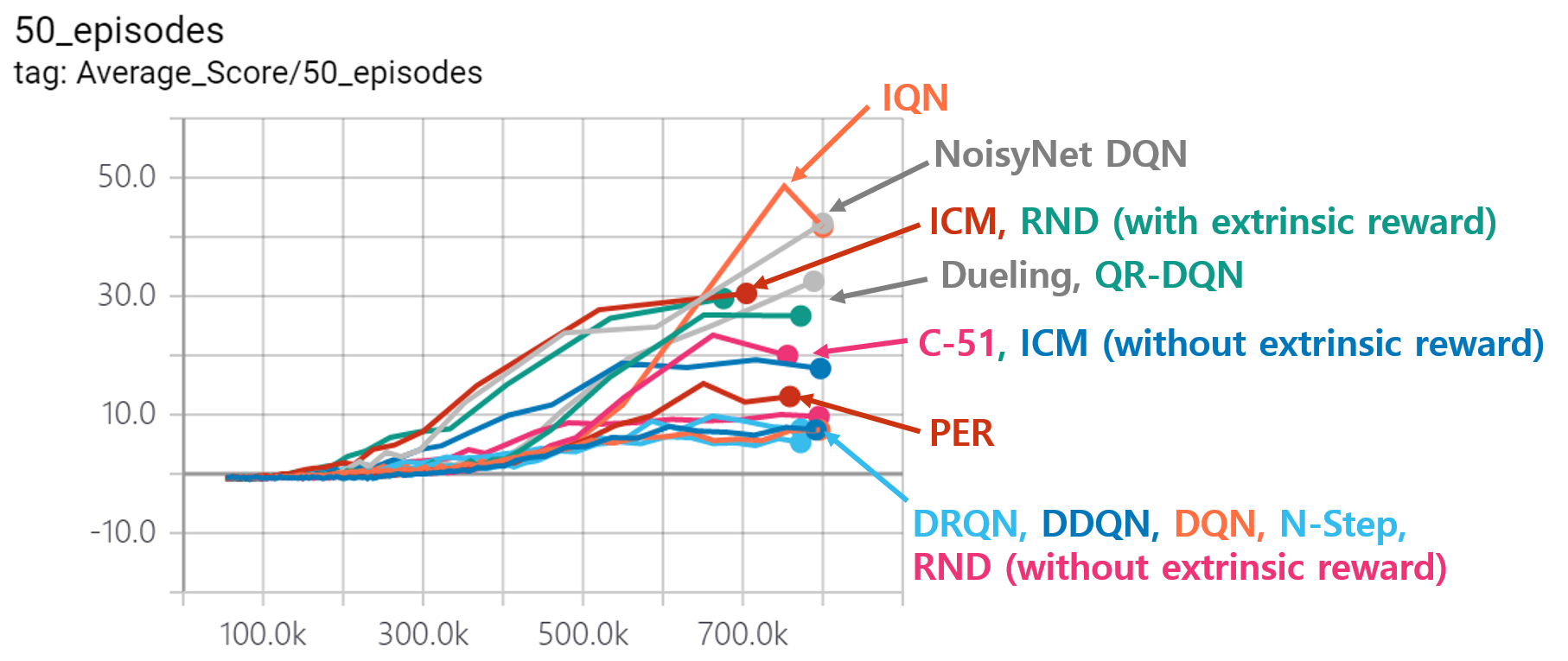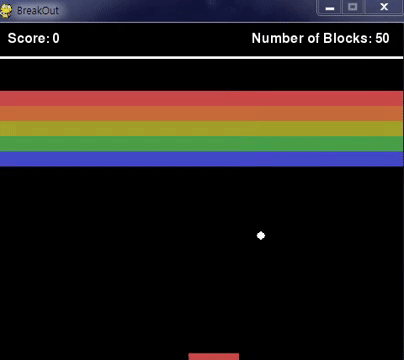Kyushik / Drl
Programming Languages
Projects that are alternatives of or similar to Drl
DRL
Introduction
This repository is the codes for Deep Reinforcement Learning
I verified my codes with games. The games are made with pygame. I made the games or I modified them to apply for DRL.
Also, environments, which are made by Unity ML-agents, are in Unity_ML_Agent Repository
Performance of each algorithm that I implemented are as follows (verified with Breakout).
Youtube Link of Playing Breakout with NoisyNet DQN
I set up the DRL code as follows.
- Human-level Control Through Deep Reinforcement Learning (DQN)
- Deep Reinforcement Learning with Double Q-Learning (DDQN)
- Prioritized Experience Replay (PER)
- Dueling Network Architecture for Deep Reinforcement Learning (Dueling DQN)
- Noisy Networks for Exploration (NoisyNet DQN)
- A Distributional Perspective on Reinforcement Learning (C51)
- Learning to Predict by the Methods of Temporal Differences (N-step DQN)
- Deep Recurrent Q-Learning for Partially Observable MDPs (DRQN)
- Distributional Reinforcement Learning with Quantile Regression(QR-DQN)
- Implicit Quantile Networks for Distributional Reinforcement Learning(IQN)
- Curiosity-driven Exploration by Self-supervised Prediction (ICM)
- Exploration by Random Network Distillation(RND)
This is the PPT file for the description of DQN codes that I implemented.
The description of DRL algorithms
Description of algorithms link
Environment
Software
- Windows7 (64bit)
- Python 3.6.5
- Anaconda 4.2.0
- Tensorflow-gpu 1.12.0
- pygame 1.9.3
- opencv3 3.1.0
Hardware
-
CPU: Intel(R) Core(TM) i7-4790K CPU @ 4.00GHZ
-
GPU: GeForce GTX 1080TI
-
Memory: 16GB
Implementation
The sample code for my environment is Environment_sample.py
# This is sample code for Deep Reinforcement Learning testing environment
# Import modules
import sys
import numpy as np
import random
# Import games
sys.path.append("DQN_GAMES/")
# add as game the one that you want to play!!
import pong as game
import dot
import dot_test
import tetris
import wormy
import breakout
# Get Number of action and name of game from the game code
Num_action = game.Return_Num_Action()
game_name = game.ReturnName()
# Get game state class from game code
game_state = game.GameState()
while True:
# Choose random action
action = np.zeros([Num_action])
action[random.randint(0, Num_action - 1)] = 1.0
# You can get next observation, reward and terminal after action
observation_next, reward, terminal = game_state.frame_step(action)
You can run the game with random action using this code!!
Please check that you made the folder for saved variables
checkpoint = tf.train.get_checkpoint_state("saved_networks_DQN")
Then you are ready to implement the code! 😆
Games
Most of the games are made with python and pygame!
The codes are easy to understand and variables are easy to understand.
So fix the code as you want!! 😆


